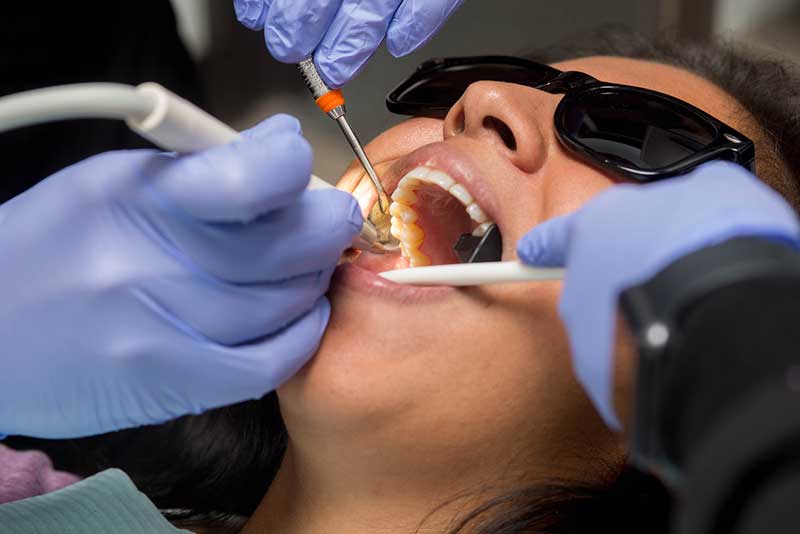What Is The Treatment For Gingivitis?
Posté par Jason Clark
Corps
Gingivitis can be any swelling, redness, irritation, or bleeding of the gums. Gingivitis is a severe inflammation of the gums. Usually, it occurs due to plaque buildup on the teeth. Plaque occurs naturally and forms a bacterial layer over the teeth, gum, and surrounding tissues, resulting in gum swelling. If you do not appoint Gingivitis Treatment Houston, it may lead to more severe gum disease that is popular as periodontitis and can even lead to tooth loss.
Symptoms at the first stage of gingivitis are less noticeable.
Gum Disease Treatment Houston help in relieving inflammation, removing plaque, and embracing the proper oral care habits to prevent plaque buildup. Your dentist may provide antiseptics and antibiotics to control bacteria growth on the teeth and under the gums.
You can control gum diseases in the following ways:
- Change in your Lifestyle
Change your diet and prescribed medication given by your doctor. Consult your dentist for other drugs if medications or poor nutrition are causing gingivitis. The initial treatment involves stopping or changing the medications causing gingivitis.

- Oral hygiene
Brushing and flossing your teeth regularly to preserve better oral hygiene. The Gum Disease Treatment Houston suggests brushing twice daily, and flossing once daily can benefit your dental health.
- Scaling and root planing (SRP)
In most cases, gingivitis develops due to plaque buildup, so your dentist will recommend you for scaling and root planing medication or deep cleaning of your gums. Scaling helps in removing the plaque below the gum line, and root planing smooth out the root’s surface and allows gum tissues to reattach to the tooth.
- Medications
After deep cleaning your gums, the dentist may prescribe antibiotics, an antiseptic mouthwash, or antiseptics. For more severe infections or periodontitis, your dentist may prescribe you a short course of oral antibiotics.
Causes of gingivitis:
The leading cause of gingivitis is the accumulation of plaque between and around the teeth. The plaque accumulates naturally on the teeth when not correctly cared for teeth and gums. It mainly occurs when bacteria connect the smooth surface of a tooth.
Sometimes the plaque gets hard and is called calculus or tartar and surrounds nearby to the gums at the bottom of the tooth. Only dental professionals can remove tartar or calculus, which can lead to gum disease and destroy tissue.
Signs and symptoms of gingivitis include:
- Inflammation and discoloration in gums
- Gums that are painful while touching
- While brushing and flossing, bleeding from the gums.
- halitosis, or bad breath
- Receding gums
- soft gums
However, you might not find discomfort or noticeable symptoms in the first stage of gingivitis.

What is the best medication for gingivitis?
Proper cleaning and correct dental hygiene are the best treatment for oral health. Ask your dentist open near me on Saturday for a mouth rinse to help you clean your mouth effectively.
Use toothpaste recommended by your dentist to fight off bacteria and stop plaque formation.
Conclusion:
Regularly visiting your dentist and maintaining good oral hygiene can help your mouth fight gum diseases. It is your responsibility to prevent dental issues from recurring.









commentaires